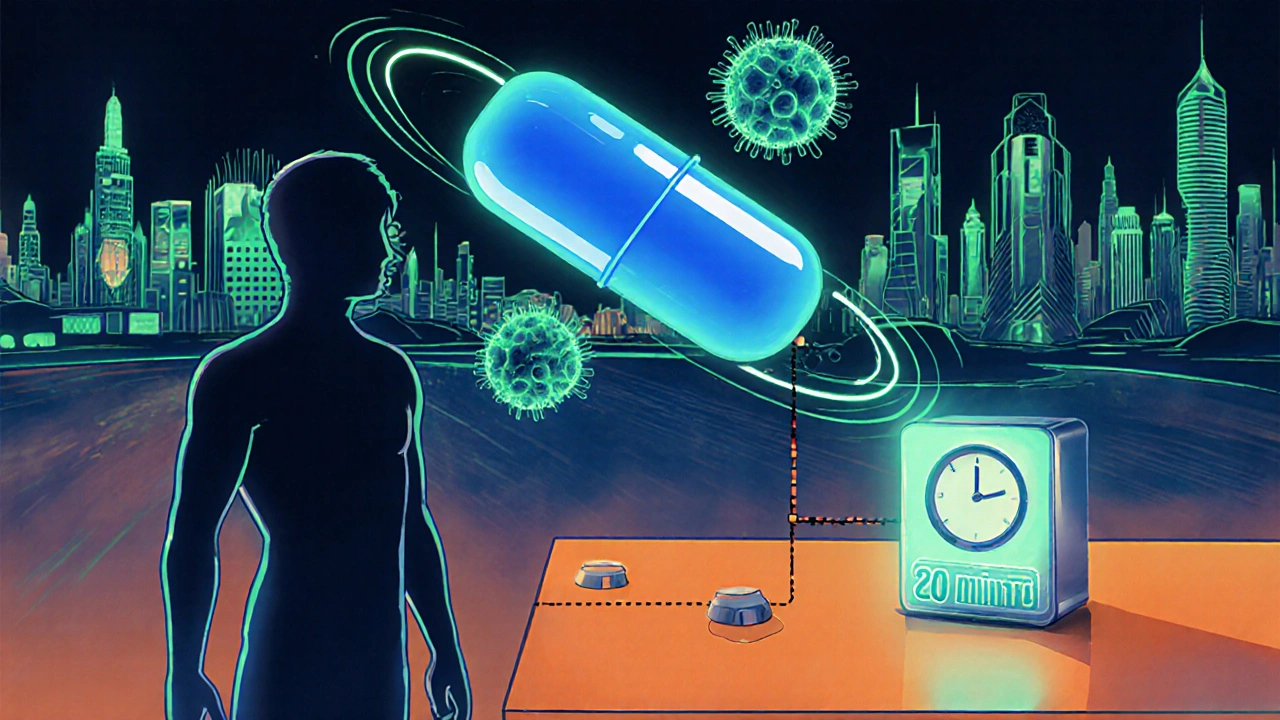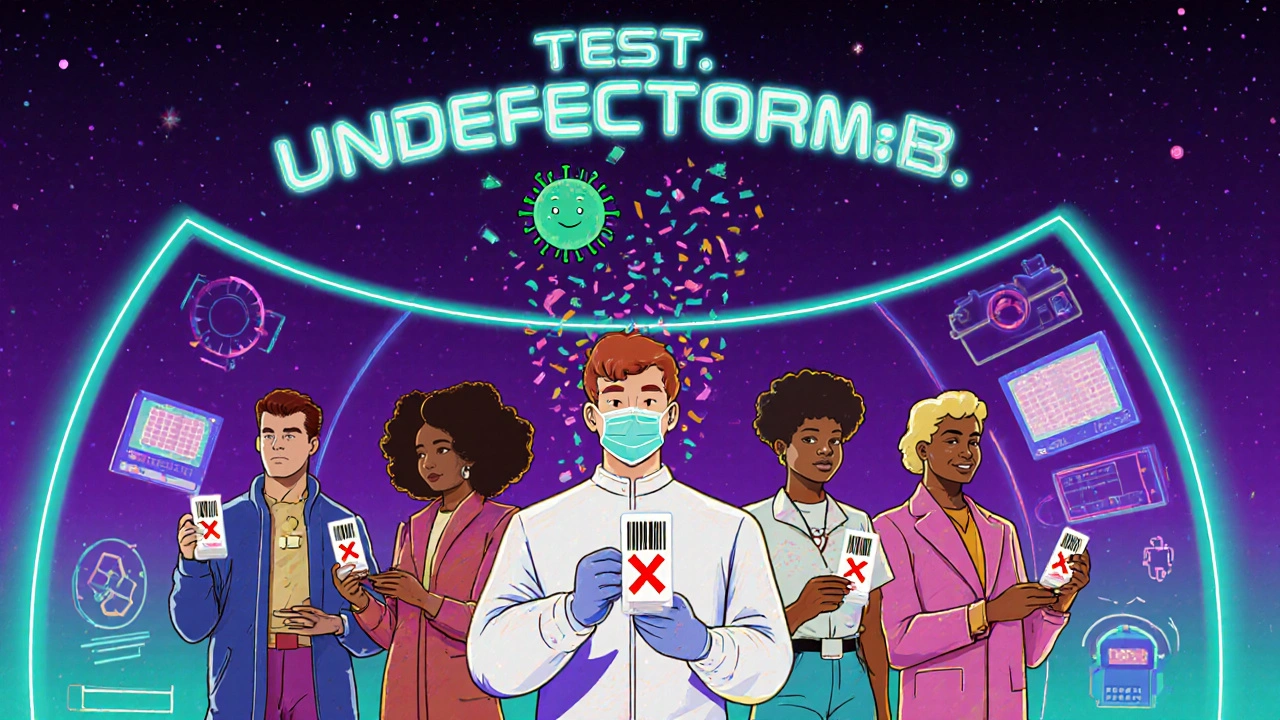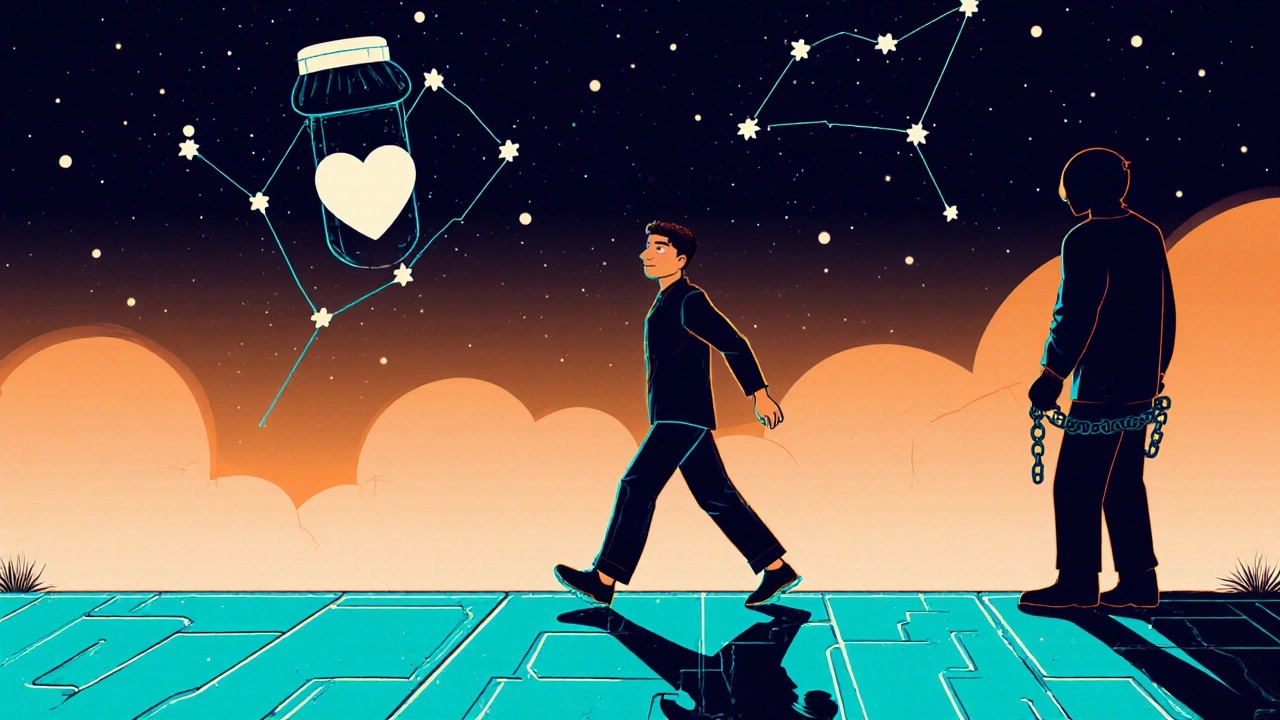Atazanavir and Why Routine HIV Testing Saves Lives

Every year in the U.S., about 15% of people living with HIV don’t know they have it. That’s one in seven. Many of them aren’t sick yet. They feel fine. But they can still pass the virus to others. And without treatment, HIV slowly destroys the immune system-until it becomes AIDS. The good news? We have powerful tools to stop this. One of them is atazanavir, a drug that’s been helping people live long, healthy lives since it was approved in 2003. But drugs like atazanavir only work if you know you need them. That’s why routine HIV testing isn’t just important-it’s life-saving.
What Atazanavir Actually Does
Atazanavir is a protease inhibitor. That’s a fancy way of saying it blocks a key enzyme HIV needs to copy itself. Without that enzyme, the virus can’t make new copies of itself in your body. When taken correctly with other HIV medicines, atazanavir can reduce the amount of virus in your blood to undetectable levels. That means the virus is still there, but it’s so low that standard tests can’t find it.
Undetectable equals untransmittable. That’s not a slogan-it’s science. The PARTNER and Opposites Attract studies tracked thousands of couples where one partner had HIV and the other didn’t. When the person with HIV was on effective treatment, including atazanavir-based regimens, there were zero cases of transmission over many years. That’s how powerful these drugs are.
Atazanavir is usually taken once a day, often with food. It’s part of combination therapies like Reyataz + Norvir, or in fixed-dose pills like Evotaz. It’s not a cure, but it turns HIV from a death sentence into a manageable condition. People on consistent treatment can expect a near-normal lifespan.
Why Routine Testing Is Non-Negotiable
Here’s the problem: HIV doesn’t always cause symptoms. Many people don’t feel sick for years. You might think you’re fine because you haven’t lost weight, haven’t had fevers, haven’t been to the doctor. But HIV is still quietly attacking your immune cells.
The CDC recommends everyone between 13 and 64 get tested at least once. People at higher risk-like those with multiple partners, those who use injection drugs, or those in relationships with someone living with HIV-should get tested every 3 to 6 months. That’s not a suggestion. It’s a medical standard.
And here’s the thing: testing is fast, easy, and free in most places. You can get a rapid test at a clinic, pharmacy, or even at home with an FDA-approved kit. Results in 20 minutes. No needles, no waiting weeks. If the test is positive, you’re connected to care immediately. That’s when atazanavir-or another antiretroviral-can start working.
What Happens If You Don’t Get Tested
Delaying testing has real consequences. The longer HIV goes untreated, the more damage it does. Your CD4 count-the measure of your immune health-drops. You become more vulnerable to pneumonia, tuberculosis, certain cancers, and other infections that a healthy immune system would normally fight off.
And if you’re not on treatment, you’re more likely to pass HIV to others. In 2023, nearly half of new HIV diagnoses in the U.S. came from people who didn’t know they were infected. That’s not because they were careless. It’s because they never got tested.
Atazanavir doesn’t work if you’re not diagnosed. And even if you’re on treatment, skipping doses because you feel fine can lead to drug resistance. That means the medicine stops working. Then you need stronger, more complex regimens. More pills. More side effects. More cost. Prevention through testing avoids all of that.

Who Should Be Tested-and How Often
Not everyone needs the same testing schedule. Here’s a simple guide:
- Everyone 13-64: At least once in your lifetime.
- High-risk groups: Every 3-6 months. This includes men who have sex with men, people who share needles, those with multiple partners, or those with a partner who has HIV.
- Pregnant people: Early in pregnancy, and again in the third trimester if you’re at risk. HIV can be passed to babies during birth-but treatment reduces that risk to under 1%.
- After potential exposure: Get tested 2-4 weeks after, then again at 3 months. Modern tests can detect HIV within days of exposure.
Testing isn’t about judging behavior. It’s about knowing your status. It’s like checking your blood pressure. You don’t wait until you have a heart attack to find out.
Atazanavir and Access: It’s Not Just About the Drug
Having the right medicine isn’t enough. You need to be able to get it. Atazanavir is available through Medicaid, Medicare, and most private insurance plans. Programs like Ryan White HIV/AIDS Program help cover costs for people without insurance. Many clinics offer sliding-scale fees or free testing and treatment.
But stigma still gets in the way. Some people avoid testing because they’re afraid of being judged. Others think HIV only affects certain groups. That’s false. HIV doesn’t care about your race, income, gender, or where you live. In 2023, Black and Latino communities accounted for more than 70% of new diagnoses in the U.S.-not because they’re more at risk by nature, but because of systemic barriers to testing and care.
Getting tested isn’t just personal. It’s public health. When more people know their status and start treatment, the whole community gets safer. Fewer transmissions. Fewer hospitalizations. Fewer deaths.

What to Do After a Positive Test
If you test positive, you’re not alone. And you’re not doomed. The next step is simple: connect with a provider. They’ll check your viral load and CD4 count. Then they’ll start you on a treatment plan. Atazanavir might be part of it-or another drug like dolutegravir or bictegravir. The choice depends on your health, other medications you take, and your preferences.
Most people start treatment within days of diagnosis. The goal? Get your viral load undetectable within 3 to 6 months. That’s the window where you go from being a risk to others to being protected-and protecting others.
Side effects from atazanavir? Some people get mild nausea or jaundice (yellowing of the skin or eyes), but it’s usually temporary. Most people tolerate it well. Your doctor will monitor you and adjust if needed.
Breaking the Silence
Too many people still think HIV is a problem for someone else. That’s dangerous thinking. The virus spreads silently. It doesn’t announce itself. But testing does. Routine HIV testing is the first step in ending the epidemic. It’s not about fear. It’s about control. Control over your health. Control over your future.
Atazanavir is a miracle drug-but only if it’s taken. And it’s only taken if you know you need it. So ask yourself: When was the last time you got tested? If you don’t know, make an appointment today. Walk into a clinic. Order a home test. Text a friend to go with you. You don’t need a reason to get tested. You just need to care enough to do it.
Knowing your status isn’t the end of the story. It’s the beginning of a healthier one.
Can you take atazanavir if you’re not HIV-positive?
No. Atazanavir is only prescribed to people diagnosed with HIV. It’s not a preventive drug like PrEP (which is used to prevent HIV infection). Taking it without HIV won’t help you and could cause side effects or drug resistance if you later become infected.
How often should I get tested for HIV?
Everyone between 13 and 64 should get tested at least once. If you’re at higher risk-like having multiple partners, using injection drugs, or having a partner with HIV-you should get tested every 3 to 6 months. Pregnant people should be tested early and again in the third trimester if they’re at risk.
Is atazanavir still commonly used today?
Yes. While newer drugs like dolutegravir are now preferred for first-time treatment because they’re simpler and have fewer side effects, atazanavir is still widely used. It’s often part of combination pills like Evotaz, and it’s a solid option for people who need a protease inhibitor or have specific health conditions.
Can HIV be cured with atazanavir?
No. Atazanavir doesn’t cure HIV. It controls the virus by keeping the viral load low. People on effective treatment can live long, healthy lives and can’t transmit the virus to others. But the virus stays in the body, so treatment must continue for life.
What if I test positive but don’t want to start treatment?
You have the right to make your own choices. But delaying treatment puts your health at risk and increases the chance you’ll pass HIV to others. Modern HIV treatment is simple-often just one pill a day. Most people feel better within weeks. The longer you wait, the harder it becomes to rebuild your immune system. Talk to a provider about your concerns. There are support systems in place to help you.

Rachel Harrison
October 27, 2025 AT 23:30Just got tested last week-negative! 🎉 So simple, no needles, just a finger prick. If you haven’t done it yet, do it today. Your future self will high-five you.
Sue M
October 28, 2025 AT 12:25It's concerning how many people still believe HIV is a 'punishment' for certain lifestyles. The data doesn't support that myth-it's about access, stigma, and ignorance. Routine testing isn't optional; it's public health 101. And yes, atazanavir remains clinically relevant, even if it's not first-line anymore. Precision matters.
james landon
October 29, 2025 AT 18:29bro i got tested last year and it was free at the pharmacy, no big deal. why is everyone making this sound like a life-or-death emergency? it's just a blood test lol.
Tiffanie Doyle
October 31, 2025 AT 10:42OMG I JUST REALIZED I HAVEN’T BEEN TESTED SINCE COLLEGE 😳 like… i’m 32 now. no excuses. booked my appt for tomorrow. thanks for the kick in the pants, OP 🙏💖
Jenn Clark
November 2, 2025 AT 00:00I work in a community clinic in rural Georgia. We offer free testing every Thursday. Many folks come in nervous, thinking they’ll be judged. They leave relieved-and sometimes, for the first time, in care. Testing saves lives. It’s not dramatic. It’s just… human.
Stuart Rolland
November 3, 2025 AT 22:51I’ve been on a regimen including atazanavir for over a decade now. I was diagnosed in 2012, when the options were rougher and the stigma was louder. Today, I wake up, take one pill with my coffee, and go about my life. I travel, I hike, I dance at weddings. My viral load has been undetectable since 2013. I’ve had multiple partners since then-zero transmissions. That’s not luck. That’s science. And if you’re hesitating to get tested because you’re scared of what you might find, I get it. But I also know that the person you become after a positive result-healthy, empowered, in control-is someone you’ll be proud of. You’re not broken. You’re just human. And humans get tested.
L Walker
November 3, 2025 AT 23:59Interesting how the US focuses so much on individual testing, while in the UK, we’ve moved toward population-level screening in primary care. Still, the stigma persists here too-especially among older generations. Atazanavir? Still in use, yes, but mostly as a second-line. Dolutegravir’s the gold standard now-fewer interactions, less jaundice. But the core message remains: test early, treat early. End of story.
giri pranata
November 5, 2025 AT 09:12From India here-our government has made HIV testing free in all public hospitals now. Still, people avoid it because of shame. I’ve seen it firsthand. My cousin was scared to get tested for 5 years. When he finally did, he started treatment immediately. Now he’s teaching others at the local NGO. Atazanavir? We use it too. Not glamorous, but it works. Knowledge is power. And power comes from testing.
Shiv Sivaguru
November 6, 2025 AT 18:52Let’s be real-this whole post is just pharma marketing dressed up as public health. Atazanavir? Yeah, it’s a drug. But why not talk about why HIV rates are still climbing in Black and Latino communities? Why not talk about how Medicaid cuts hurt access? Nah, easier to just tell people to ‘get tested’ and buy a pill. You want to save lives? Fix the system, not just push the test.